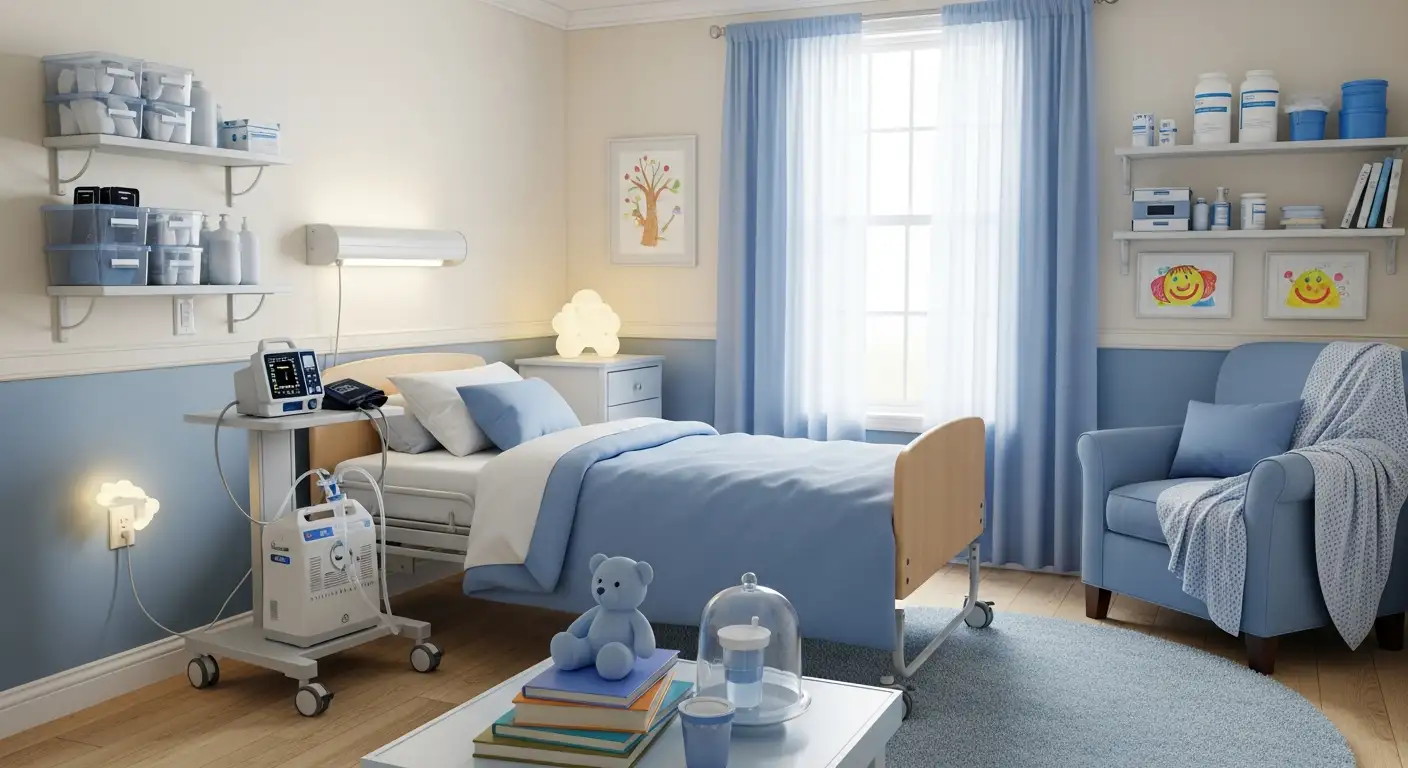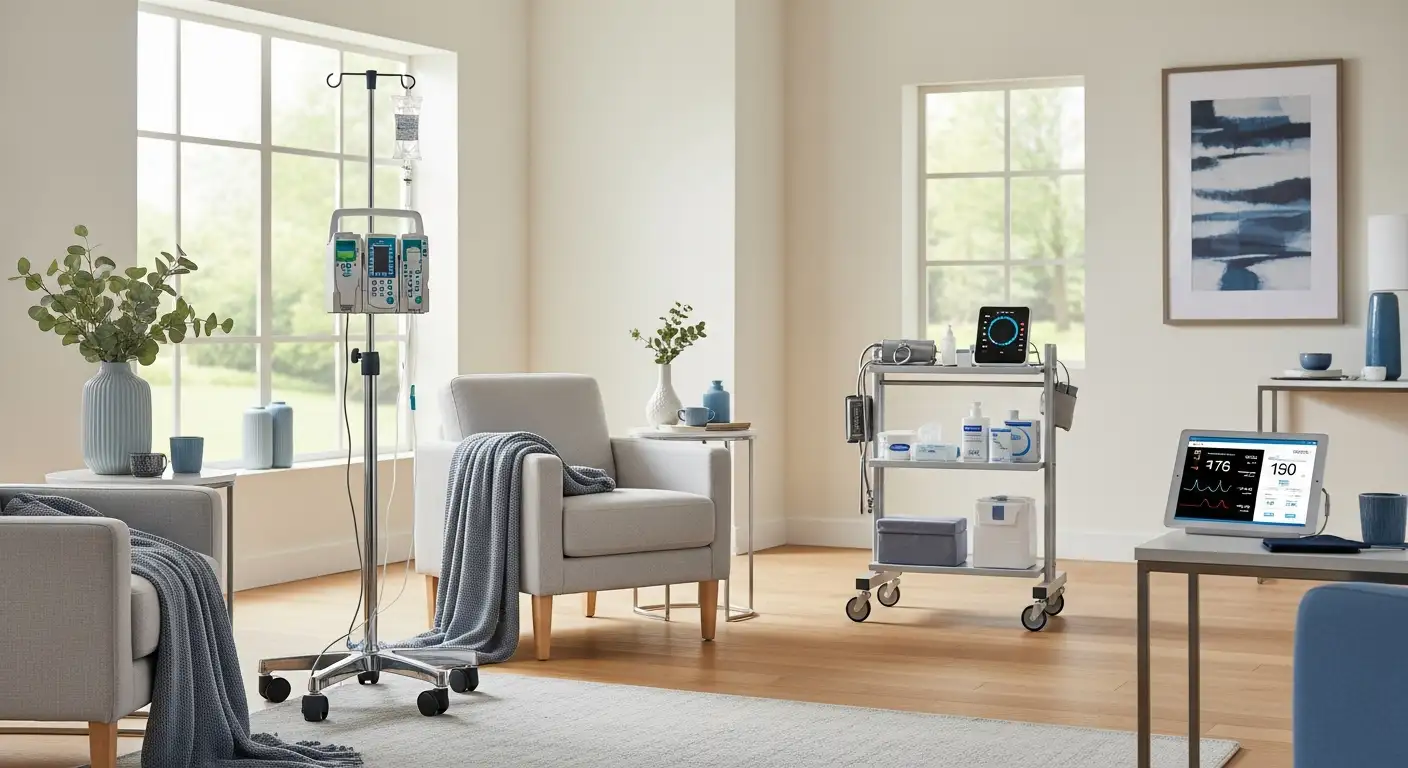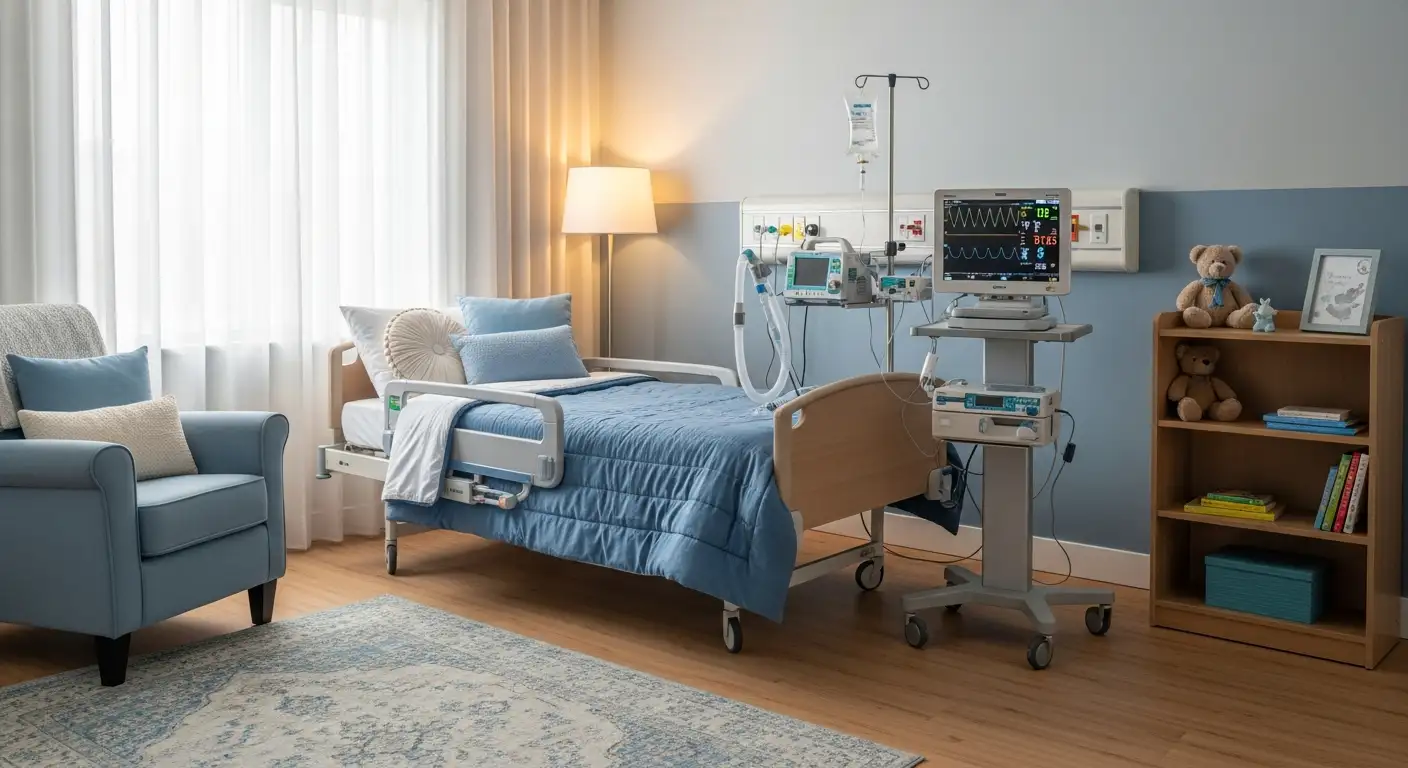Supporting Children with Physical Disabilities Through Home-Based Healthcare
Pediatric home care has emerged as a critical component in managing the health, safety, and development of children with physical disabilities. By delivering tailored medical, therapeutic, and supportive services within the familiar environment of home, this approach fosters independence, promotes overall well-being, and strengthens family involvement. This article explores how pediatric home care supports children with medical and developmental needs, the range of services provided, and how it empowers families and caregivers.
Understanding Pediatric Home Care for Children with Special Health Needs

What is pediatric home care for children with special health care needs?
Pediatric home care involves delivering comprehensive medical and supportive services directly in the child’s home. This approach caters to children with complex medical conditions, disabilities, or chronic illnesses, helping them maintain their health and function in a familiar and safe environment.
Services are provided by family caregivers and specialized healthcare professionals, such as nurses, therapists, and aides. They utilize durable medical equipment like ventilators, feeding pumps, and mobility devices to support the child’s health needs.
This type of care is medically necessary because it promotes stability, reduces hospital stays, and improves quality of life. It is tailored to each child's unique medical, developmental, and emotional needs, and focuses on supporting participation in daily routines, school, and community activities.
What services are included in pediatric home care?
Pediatric home care encompasses a broad spectrum of services, including:
- Skilled nursing care for medication management, IV therapies, and disease monitoring.
- Physical, occupational, and speech therapies to improve mobility, communication, and daily living skills.
- Personal care services such as bathing, dressing, and toileting.
- Respiratory support, including ventilator management and oxygen therapy.
- Assistance with activities of daily living and mobility.
- Medical social services to support family emotional well-being.
- Use of specialized medical equipment like communication devices, sensory tools, and assistive technology.
- Education and training for family caregivers to safely manage health conditions and medical devices.
Why is pediatric home care crucial?
This approach ensures children receive tailored, continuous care that addresses their health and developmental needs while minimizing the disruption of hospital routines. It encourages families to participate actively in care, enhances emotional comfort, and improves long-term health outcomes.
Moreover, by preventing hospital readmissions through ongoing management and early intervention, pediatric home care can reduce healthcare costs and promote more efficient resource utilization. It supports families in managing complex health situations and fosters resilience within the child’s support system.
Overall, pediatric home health care provides a compassionate, effective, and child-centered way to meet the medical and developmental needs of children with disabilities and medical complexities, ensuring they can thrive at home and in their communities.
The Benefits of Home-Based Pediatric Care for Children and Families
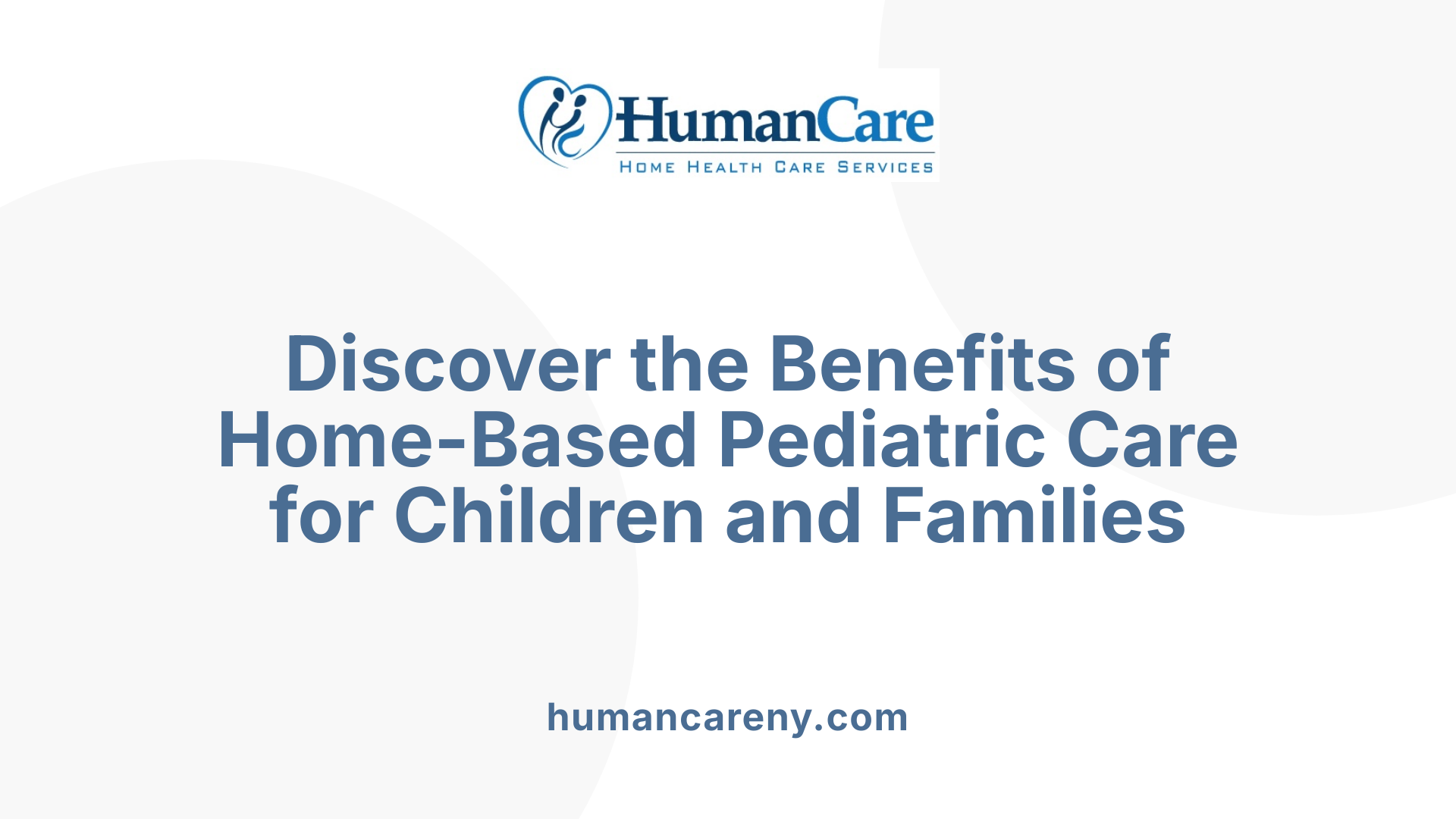
What benefits does pediatric home care offer to children with physical disabilities and their families?
Pediatric home care provides many advantages for children with physical disabilities and their families. It delivers personalized medical support right in the familiar surroundings of the home, which can significantly improve the child's overall well-being and participation in daily routines.
This type of care involves a team of healthcare professionals—including nurses, therapists, and aides—working closely with family caregivers. The use of specialized medical supplies, assistive devices, and technology helps address complex health needs efficiently. By caring for children at home, families benefit from increased comfort, less stress, and the ability to involve their children more actively in family and social activities.
Moreover, home care supports family-centered decision-making by empowering caregivers through training and ongoing communication with healthcare providers. It fosters emotional bonding and provides a sense of normalcy for the child, which can be difficult to achieve in clinical settings.
While home-based pediatric care offers these valuable benefits, it is essential to recognize that ongoing research and appropriate funding are necessary. These efforts help improve care quality, reduce disparities in access, and develop innovative models tailored to meet the diverse needs of children with disabilities and their families.
This approach not only promotes physical health but also enhances emotional and developmental outcomes, contributing to a better quality of life for children and a more manageable caregiving experience for families.
Services and Equipment in Pediatric Home Care: Supporting Development and Mobility
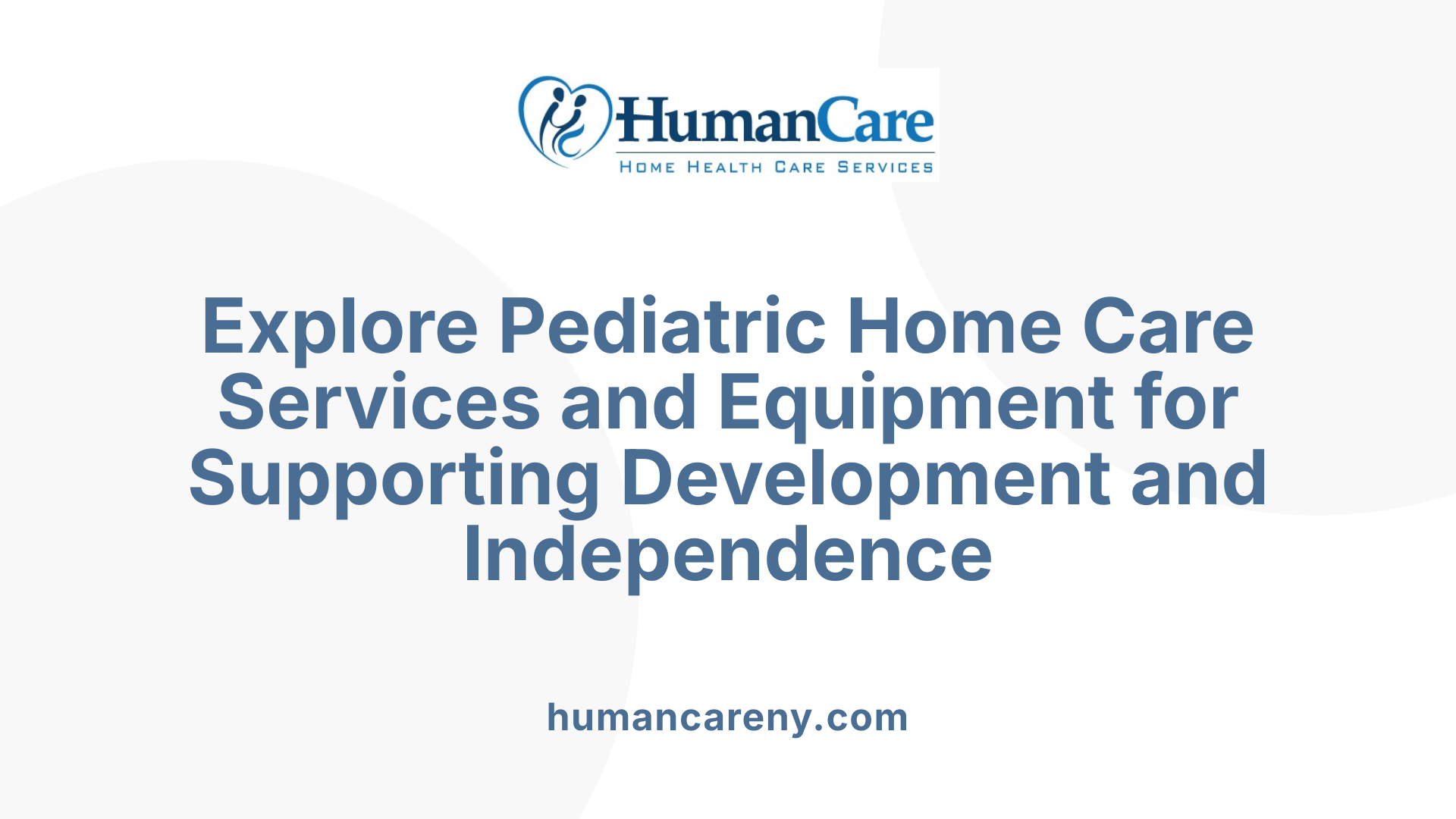
What types of services are provided by pediatric home care for children with physical disabilities?
Pediatric home care for children with physical disabilities offers a broad array of services aimed at promoting health, independence, and participation in daily life. These services are delivered by both family caregivers and professional healthcare providers in the child's home environment. They include skilled nursing, physical therapy, occupational therapy, speech therapy, and behavioral support, all tailored to meet the child's specific needs.
Nursing services provide medication management, monitors for chronic conditions, and support for medical devices like feeding tubes and ventilators. Therapies such as physical and occupational therapy help improve mobility, strength, and fine motor skills. Speech therapy addresses communication and swallowing challenges, fostering better interaction with family, peers, and teachers.
Beyond medical intervention, personal care services assist with activities of daily living, including bathing, dressing, and feeding. The overall goal is to enhance functional independence while ensuring family-centered, equitable care.
Current research highlights that high-quality, coordinated home health services can reduce hospitalizations and healthcare costs, reinforcing the importance of comprehensive service delivery tailored to each child's unique needs.
How is pediatric home care assisted by specialized equipment, and what are its benefits?
Specialized equipment is fundamental to pediatric home care, enabling children with disabilities to achieve greater mobility, safety, and participation. Equipment such as mobility aids (power wheelchairs, gait trainers), respiratory devices (ventilators, oxygen monitors), and communication tools (communication boards, electronic devices) support the child's physical and emotional development.
Home health teams, including caregivers and professionals, coordinate to supply, install, and train families on the proper use of these devices. This ongoing support ensures that children can safely and effectively utilize their equipment, enhancing their independence and participation in activities like learning, play, and social interaction.
The benefits of integrating specialized equipment into home care are substantial. They include improved health outcomes, increased safety, and a better quality of life for children and their families. Equipment like seizure monitors, adaptive seating, and communication aids also promote emotional well-being and foster family bonding.
Overall, the use of such tailored devices in the home environment ensures children with disabilities can live more fulfilling lives, reducing the need for emergency care and hospital stays, and facilitating continuous development within a familiar setting.
| Service or Equipment Type | Purpose | Additional Details |
|---|---|---|
| Physiotherapy & Occupational Therapy | Improve mobility and daily functioning | Includes physical exercises, adaptive devices |
| Medical Equipment | Support respiratory, nutritional, and safety needs | Ventilators, feeding pumps, seizure monitors |
| Mobility Aids | Enable movement and exploration | Power wheelchairs, adaptive strollers |
| Communication Devices | Assist with self-expression | Speech-generating devices, communication boards |
| Personal Care Aids | Support daily routines | Lift systems, suction machines |
This comprehensive approach ensures children with complex needs experience optimal health, independence, and emotional well-being within their home and community settings.
Coordination, Transition, and Support Systems in Pediatric Home Care
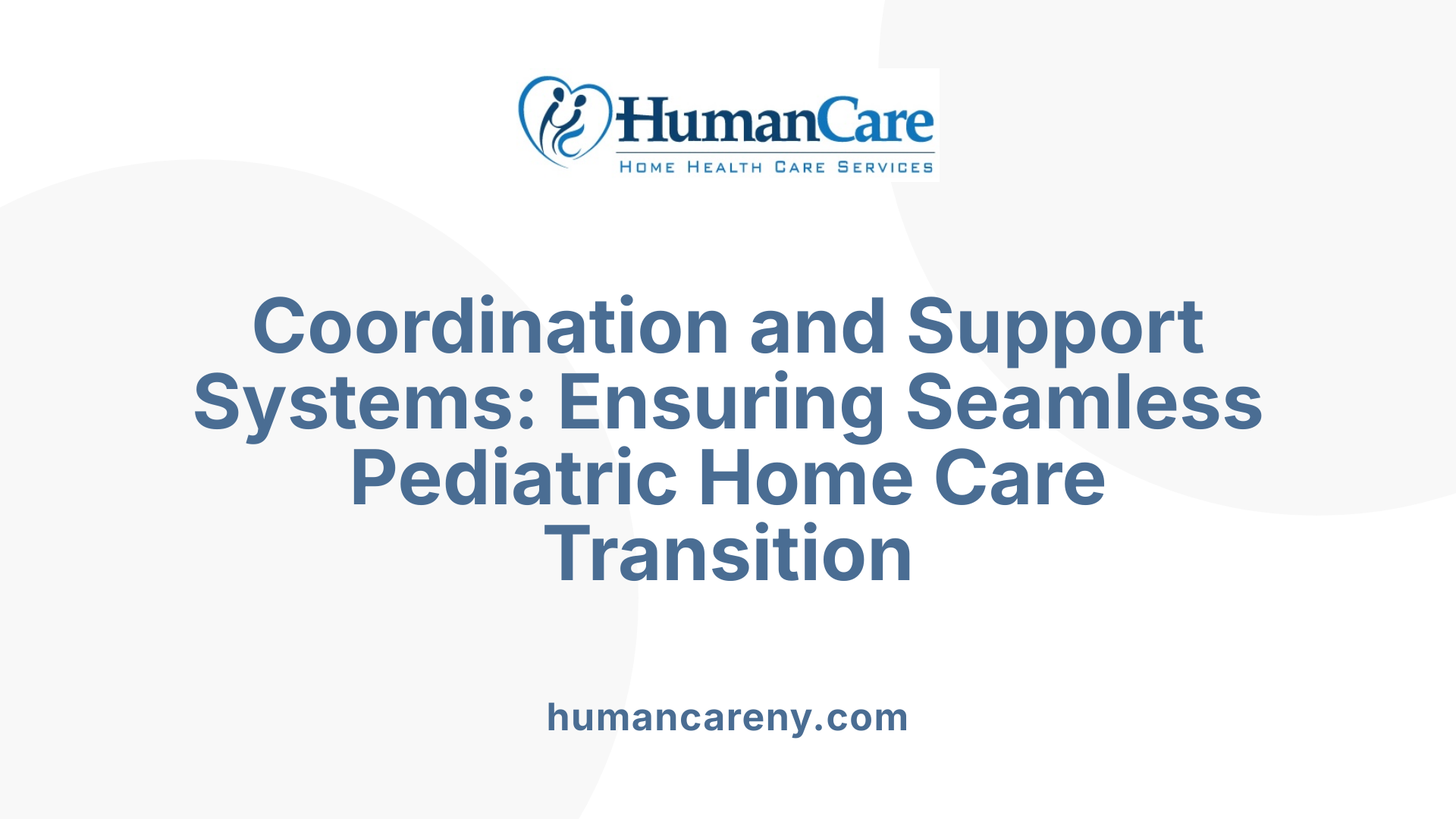 How is medical coordination and support system management handled in pediatric home care for children with physical disabilities?
How is medical coordination and support system management handled in pediatric home care for children with physical disabilities?
Medical coordination in pediatric home care requires a collaborative approach involving family caregivers, healthcare providers, and community resources. This system manages specialized medical equipment, medication regimens, and ongoing health assessments to ensure the child’s physiological health. Multidisciplinary teams—including nurses, therapists, and social workers—help create individualized care plans that address medical and developmental needs.
Enhancing system management involves developing data-sharing platforms, patient registries, and quality measurement tools to improve care continuity, safety, and equity. The Parents' Trigger Tool for Children with Medical Complexity (PAT-CMC) exemplifies a specialized instrument used for early detection of health decline at home. Despite progress, research points to the need for additional funding, standardized protocols, and comprehensive support systems to better serve these children.
How does pediatric home care facilitate a smooth transition from hospital to home?
Pediatric home care supports a seamless transition by providing necessary medical and therapeutic services directly in the child's familiar environment. This includes coordinating with hospital discharge planners, ensuring access to medical supplies, and training family caregivers in managing medical devices and ongoing therapies. Such coordinated efforts help reduce the risk of hospital readmission and foster a sense of stability and independence for the child.
Home care services also promote child participation in daily routines and community activities, reinforcing continuity of care and emotional well-being. Strengthening communication between hospital teams and home care providers, alongside establishing quality standards and care protocols, ensures that children transition smoothly while families feel supported and informed.
What legal, developmental, and financial supports are available for children with disabilities in the context of home care?
Legal supports include programs like Medicaid, the Children's Health Insurance Program (CHIP), and Supplemental Security Income (SSI), which provide essential health coverage, financial assistance, and nutritional support. These resources help families fund necessary medical services, equipment, and therapies.
Developmentally, services often involve state-specific early intervention programs and support systems designed to track progress, provide therapies, and assist with educational needs. These initiatives help children reach developmental milestones and participate fully in society.
Financially, families can access various benefits such as SSDI, TANF, SNAP, and VA pensions. Careful planning using legal tools like special needs trusts ensures that children’s financial security and benefits are protected for the future.
Overall, a combination of federal, state, and private resources forms a comprehensive framework that supports the health, development, and financial stability of children with disabilities receiving home care.
Empowering Families and Advocates for Better Access to Pediatric Home Care
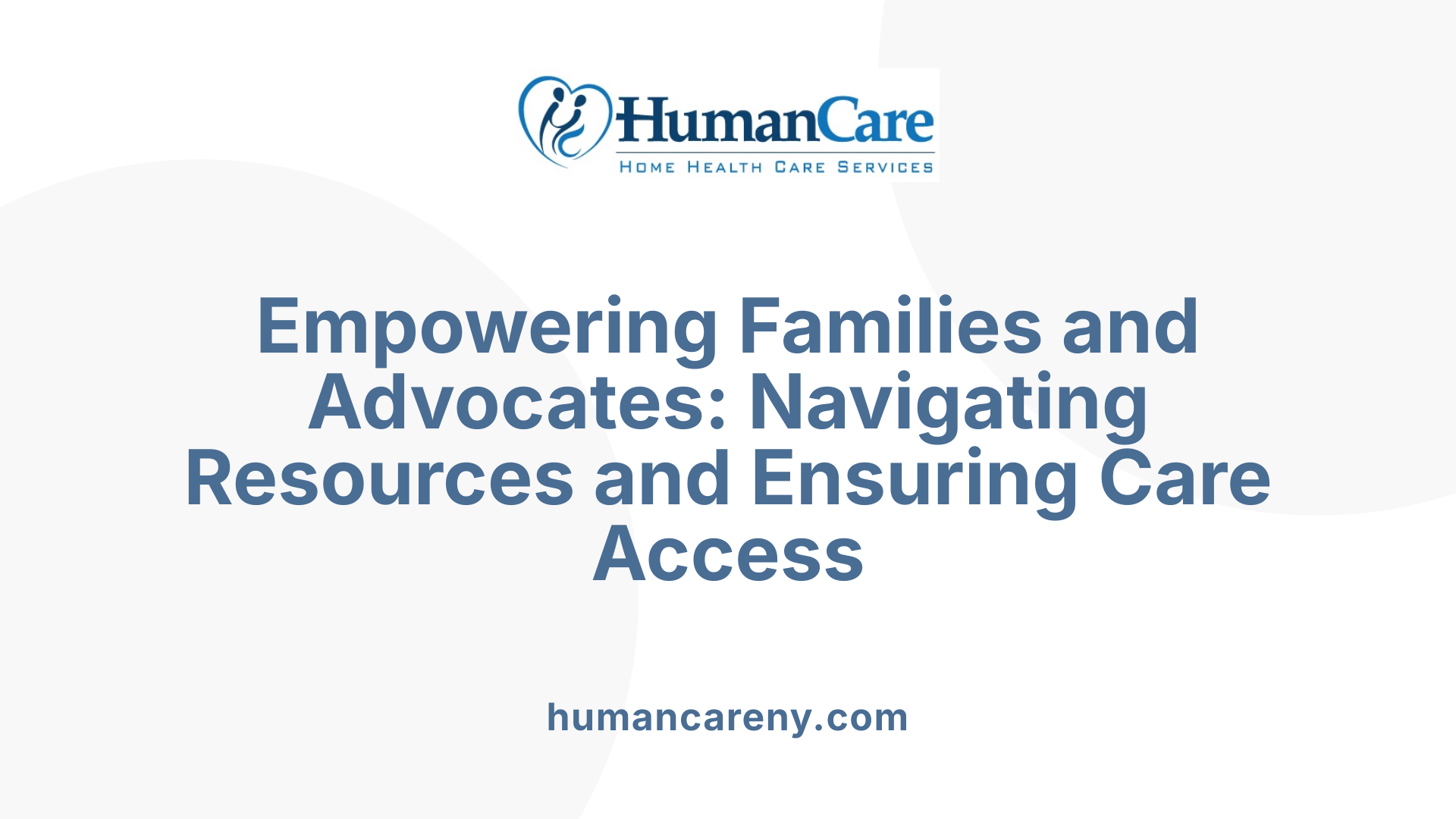
What resources and strategies can families and caregivers use to access and advocate for pediatric home care services for children with physical disabilities?
Families and caregivers play a vital role in ensuring their children receive appropriate pediatric home care services. One of the primary resources is government-funded programs such as Medicaid, which often covers a wide range of in-home care, therapies, and supportive devices, especially for children who qualify through programs like Supplemental Security Income (SSI). Applying for SSI not only offers direct financial assistance to meet everyday needs but also can open doors to additional supportive services.
State-based assistance programs such as Temporary Assistance for Needy Families (TANF) and the Supplemental Nutrition Assistance Program (SNAP) provide supplementary financial aid, food benefits, and other essential supports for low-income families managing disabilities.
In addition to government programs, private organizations, charitable grants, and community resources can supply specialized equipment, therapy services, and social support tailored to each child's unique needs.
Effective navigation of these options often involves collaborating with social workers, legal advocates, or nonprofit disability organizations. They can help families understand eligibility requirements, complete complex paperwork, and connect with local support services.
Furthermore, advocacy strategies include engaging with local health agencies, participating in parent support groups, and educating oneself about legal rights under laws such as the Individuals with Disabilities Education Act (IDEA). These actions empower families to advocate for timely service provision, proper care coordination, and necessary accommodations.
By actively utilizing these resources and strategies, families can better advocate for their children’s right to comprehensive, consistent, and high-quality pediatric home care, ultimately supporting their child's health, development, and participation in community life.
Advancing Pediatric Home Care for Children with Disabilities
Pediatric home care plays a pivotal role in supporting the health, development, and safety of children with physical disabilities. By providing specialized medical services, supporting the use of advanced equipment, and coordinating comprehensive care systems, this approach enables children to thrive in familiar environments while promoting independence and family involvement. Continued investment in research, advocacy, and policy reforms is essential to address existing disparities, improve care quality, and expand access to these vital services. Strengthening the framework for pediatric home care ensures that children with disabilities receive personalized, equitable, and effective support throughout their growth and development.
References
- Home Health Care Research for Children With Disability and ...
- Access to Home- & Community-Based Services for Children with ...
- At-Home Pediatric Care: Managing Children with Special Needs
- Home Care for Children with Special Needs
- The Role of Specialized Equipment in Pediatric Home Care
- Pediatric Home Health Care for Children with Special Needs
- In-Home Care for Children with Special Needs - BrightStar Care

